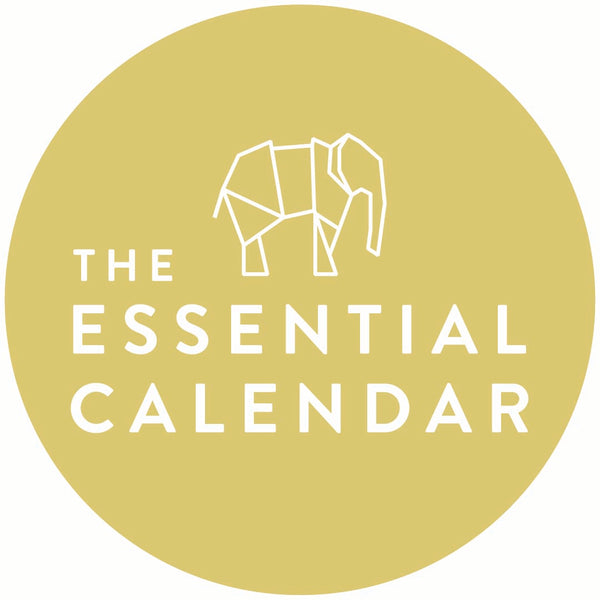
Does Planning Ahead Help You or Distract You From Staying Present?
In our fast-paced world, where to-do lists and future goals often dominate our thoughts, it's easy to wonder: Does planning ahead actually help us, or does it pull us away from being present? For many busy families, the answer isn't always straightforward. Planning can be both a tool for managing chaos and a potential distraction from savoring the moment. Let's explore how planning ahead might impact your ability to stay present, and how you can strike the right balance.
The Benefits of Planning Ahead
Organization and Clarity
When you take the time to plan ahead, you're setting the stage for a more organized and less stressful life. By mapping out your family's schedule, you're creating a roadmap that guides you through the chaos of daily life. Utilizing a quarterly wall calendar can especially help with this. Knowing what's coming up helps you prioritize tasks, allocate time wisely, and reduce the mental clutter that often leads to overwhelm. When you're not constantly worrying about what's next, you can fully engage in the here and now.
Proactive vs. Reactive Living
Planning ahead transforms your approach from reactive to proactive. By organizing meals and activities in advance, you alleviate last-minute stress and free up mental space. This allows you to be more present with your family and savor life's small moments. Using our quarterly calendars and accessories can streamline this process, letting you quickly glance at your schedule and stay on top of family commitments. With a clear view of upcoming events, you can enjoy a more balanced and fulfilling daily life.
Family Harmony
Family life is a team effort, and planning ahead can be a powerful tool for fostering harmony. When everyone knows what's expected, there's less room for misunderstandings and conflicts. Planning together as a family encourages communication and collaboration, helping everyone feel more connected. This shared sense of direction makes it easier to be fully present with each other, as you all work towards common goals.
The Potential Pitfalls of Planning
Overplanning and Rigidity
While planning ahead can be a great asset, there's a fine line between being prepared and being rigid. Overplanning can lead to a sense of inflexibility, where every moment is accounted for, leaving little room for spontaneity. This rigidity can make it difficult to adapt to unexpected changes or to simply enjoy an unplanned moment of joy. When your calendar becomes too full, it can start to feel like a burden rather than a tool for staying present.
The Mental Load
For some, the act of planning itself can add to the mental load, especially if it becomes an obsessive task. Constantly thinking about the future can make it hard to focus on the present. It's important to recognize when planning is helping you manage your life and when it's becoming a distraction. If you find yourself always thinking about what's next, you might be missing out on the beauty of what's happening right now.
Finding the Balance
Mindful Planning
The key to benefiting from planning without losing sight of the present lies in mindful planning. This means setting aside dedicated time for planning, but not letting it consume your every thought. Once your plan is in place, trust it and let go of the need to constantly revisit it. This allows you to be present in the moment, knowing that your future is taken care of.
Embrace Flexibility
It's also important to build flexibility into your plans. Leave some wiggle room in your schedule for unexpected opportunities or downtime. By doing so, you're creating a balanced approach that respects both your future goals and your need to be present. Remember, it's okay if things don't always go according to plan. Life is full of surprises, and sometimes the best moments are the ones you didn't plan for.
Involve the Whole Family
Involving your family in the planning process can make it more collaborative and less stressful. When everyone has a say, it creates a sense of shared responsibility, reducing the burden on any one person. Plus, it helps ensure that your plans reflect the needs and desires of the whole family, making it easier to stay present and connected with each other.
Planning ahead is a powerful tool that can help you stay organized, reduce stress, and enjoy a more harmonious family life. However, it's important to strike a balance between planning for the future and living in the present. By practicing mindful planning, embracing flexibility, and involving your family in the process, you can create a life that's both well-organized and filled with meaningful moments. Remember, the goal isn't just to plan your days—it's to make the most of them.
